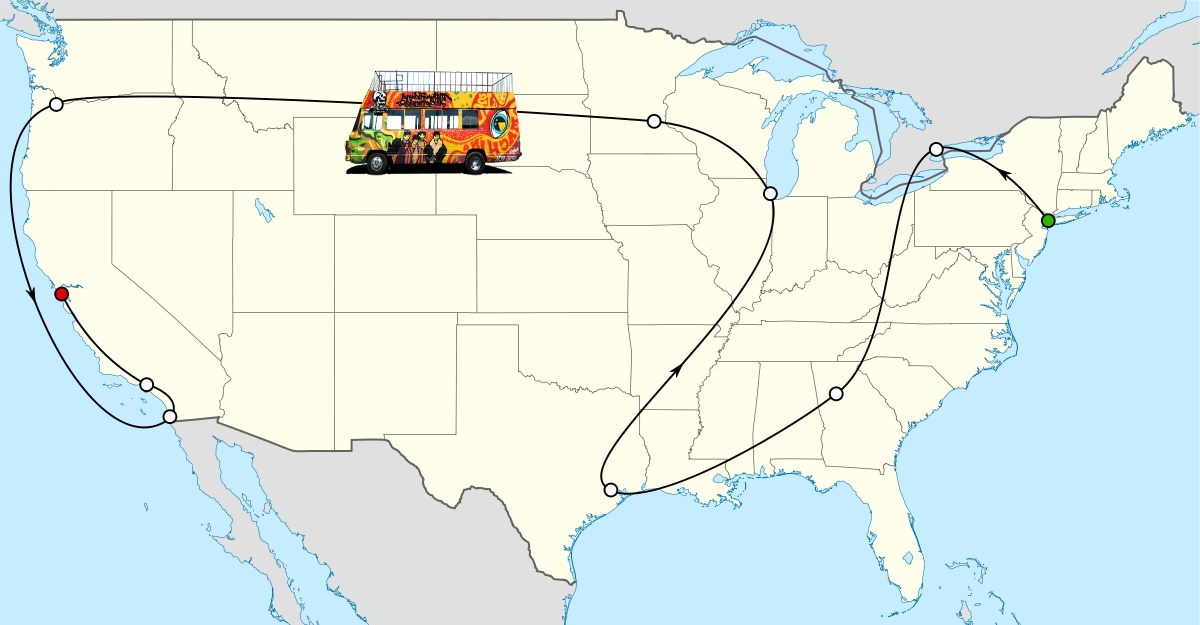Independent artists give tips on booking your own tour, and surviving it
These days making it as an independent artist is totally achievable but that doesn’t mean it’s always easy – here are some tips for going on tour from artists who’ve done it themselves.
Going on tour is a massive step for artists in lots of ways: it builds your audience, it promotes your music, it helps you to connect with fans, its fun, and it can also be a massive source of income. As DIY becomes a better and better choice for musicians without the need for giant labels to spread the word planning a tour is totally do-able if done right.
Berlin-based hip-hop producer Walter Gross takes the approach of playing, and sometimes even staying, at “non-traditional venues”. He says: “You immerse yourself in local subcultures and meet the most interesting and gracious people. It reaffirms your love for humanity.” He emphasises that no venue should necessarily be off limits as you never know what one show could do for you.
Gross says book your tour with – “A map, a calendar, and whatever contacts you’ve got”. Find out where similar artists and artists your friends with have played, other bands tours are a great reference point and explore new audiences with similar tastes to what you’re offering – it’s the best way to build your music. Gross adds: “Brevity is key – boiling your sound and package down so it’s succint and coherent. People lose interest quick.”
Contacts and friends in the industry and nearby music scenes will likely be your biggest asset and the give-and-take that comes with these connections are what creates a strong music community. LA experimental rocker Sophie Weil helps bands around LA find tour venues and gigs through her own connections. She can make a post on Facebook, “Anybody played in Eugene, Oregon?” and get help from contacts around the country. She says: “This is happening everywhere and we’re all trading.”
When you’ve found somewhere you could play or hear about potential at a venue get in contact as directly as possible and make sure that you keep chasing it up until it is secured, or you know for certain whether they can do it. You want to finalise as early as possible, no-one needs a gig cancellation last minute. Knoxville jazz guitarist Mike Baggetta advises: “If the person booking the space doesn’t write back, write again. If they still don’t write, call.”
When it comes to pay Baggetta recommends centring certain dates around one bigger gig that can help fund the rest. “It’s all about the anchor gig. Something that pays well to cover however many shows nearby that don’t. A concert series or festival may kick in hotel rooms – it’s always worth asking.” Make sure any payment is arranged and secured beforehand, or at least set down in writing so that no venues can take advantage.
Likewise with accommodation you need to make sure that it is secured in advance. See what the venues and gig organisers can offer, they might have a space or provide lodging for you but if not you need to make sure you have a place to stay – preferably somewhere that doesn’t exhaust the money you just earned from that gig. Again contacts in the biz will be a massive advantage in this respect. Weil says: “Make yourself as little of a burden as possible. I usually give them a tape or shirt, or return the favor when they come to LA.”
Most important of all is looking after yourself and your gear, especially as you’re doing things yourself. Weir adds: “Enjoy yourself, but have your wits about you and listen to your gut. If you feel unsafe in a situation, leave. If you don’t have all your ducks in a row you are gonna get burned. The cliché of the lazy musician is a thing of the past. Just stay positive when things do go wrong so you can figure out a solution.”
You can read more tips from the three artists about surviving and arranging a tour by yourself on the Spotify blog here: artists.spotify.com/blog/go-your-own-way-how-to-book-and-survive-your-own-tours-without-losing-your
